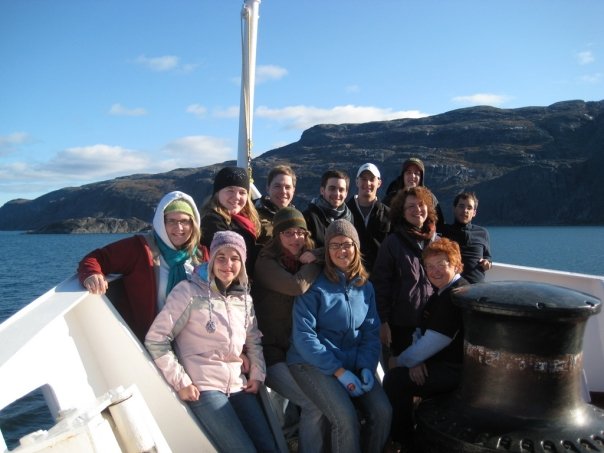One of the most meaningful experiences of my life as a musician was a 2008 tour of coastal Labrador. Memorial University’s School of Music was my first academic job, and I had only been teaching there for a few weeks before I boarded a very small plane and set off for Happy Valley-Goose Bay with the school’s Brass Ensemble.
The tour was connected to then-director Dr. Tom Gordon’s research of Moravian music in Labrador. The Moravian Church established missions in coastal Labrador (starting with Nain way back in 1771!) and brought European music and brass instruments with them. The Moravians took existing hymns and musical settings and adapted them in Inuktitut. This music lay forgotten in church attics until Dr. Gordon started his research trips to the area.
I performed as a member of the brass ensemble for the tour – we were conducted by my mentor Dr. Karen Bulmer. The concerts were extraordinary: the first half was traditional Philip Jones-style music for brass ensemble, but the second half was Moravian music and hymns set in Inuktitut. The change of language often added many syllables to each word, resulting in some humorous elongation of notes and melodies.
We flew on bush planes from Happy Valley-Goose Bay to Makkovik and Nain, and descended through the fjords to Hopedale before flying home. These communities have no road access – it was truly a once-in-a-lifetime opportunity to witness life in these communities. As someone who was born in Canada’s north (Hay River, NT) but left before I could form lasting memories of the experience, I found a lot of personal significance in the experience.
The whole trip was documented by CBC Radio’s Francesca Swann and broadcast nationally: Three Years of Provisions and Two French Horns. The title refers to the cargo carried by the Moravians on their voyage to create the first mission in Labrador – for them, music was second in importance only to food.

